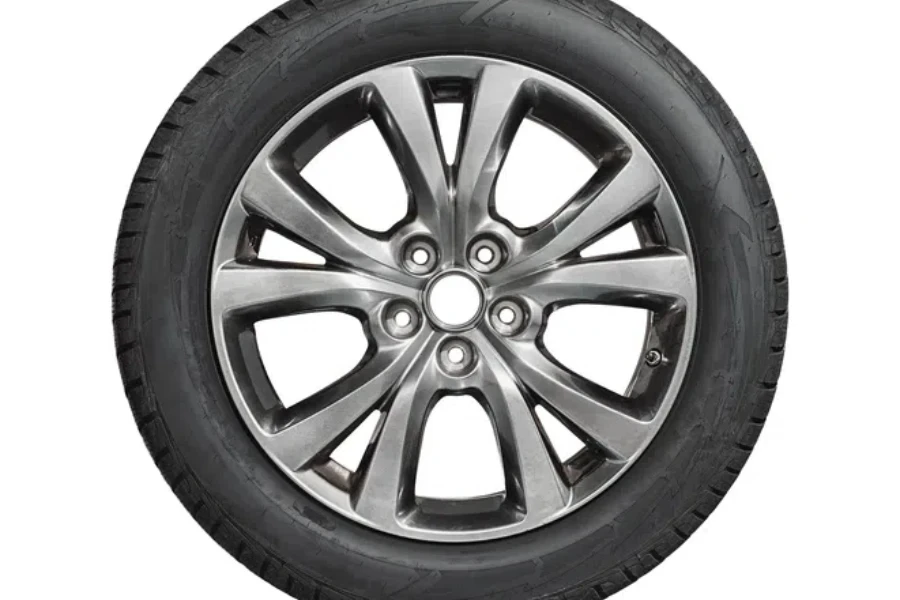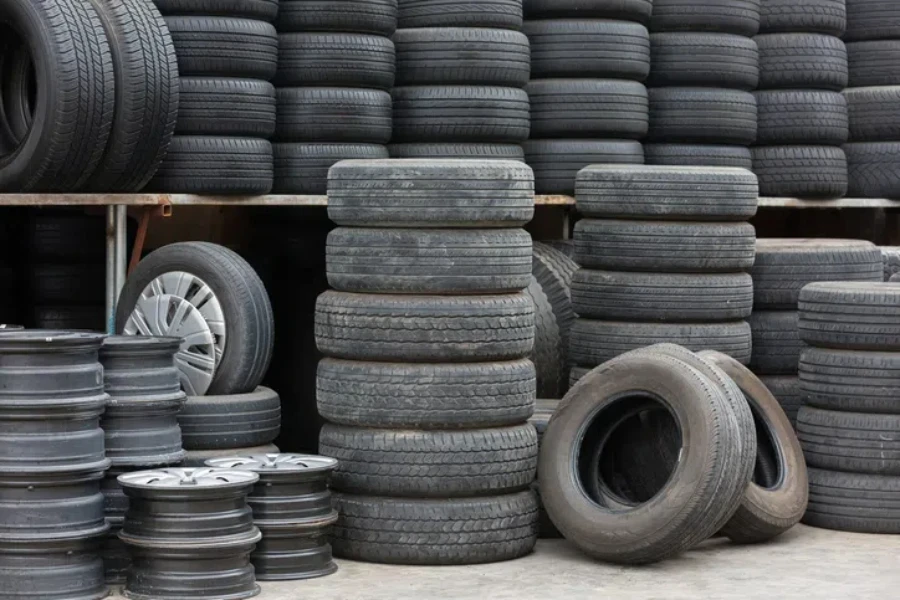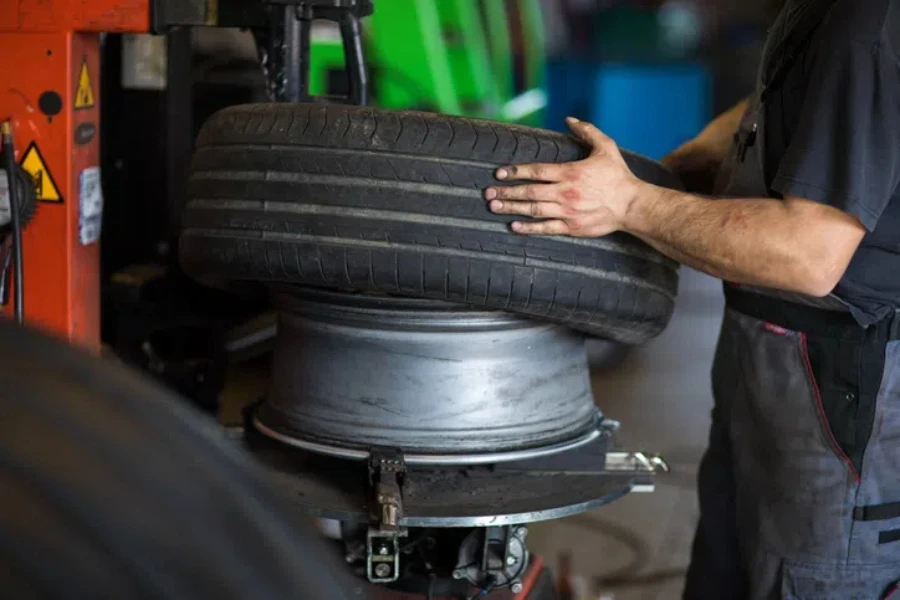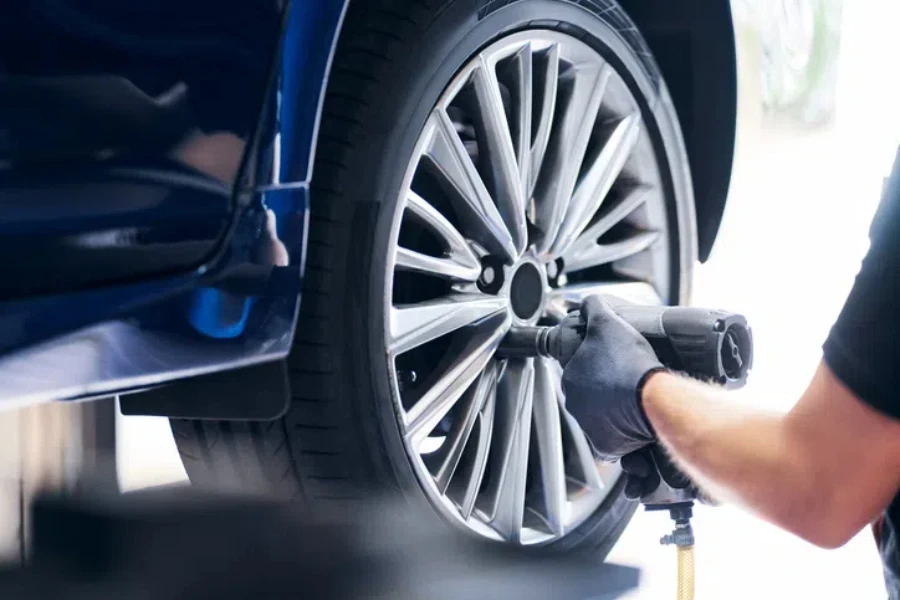Car wheels as one of the integral parts of car, can create a big impact not only to its appearance but also to its performance. Knowing and having the right information of car wheels can improve your driving experience, keep your family or friends safe while driving, and also save your money within certain period of time. This guide discussed the essential facts of the car wheels, from selecting the right car wheels until the maintenance.
Table of Contents:
– What are car wheels?
– What do car wheels do?
– How to choose car wheels
– How long do car wheels last?
– How to replace car wheels
– How much are car wheels?
What are car wheels?

The term car wheel refers not just to the round object around which your tires are fashioned, but rather to an entire assembly consisting of the rim, hub and perhaps spokes, all designed to rotate on an axle. Car wheels are also made of different materials, such as steel, alloy (an aluminium-based metal alloy), and even carbon fibre for high-performance vehicles. The material is not just an oxide layer – the layer grown onto the surface. The choice of material dictates the weight, strength and thermal conductivity of the wheel, and thereby the vehicle performance.
The same wheels can have a large effect on the car’s aerodynamics, fuel consumption and handling. For example, wheels with a larger size and a wider profile will allow for better stability and grip on the road. But they will also increase the weight, which reduces the fuel efficiency and increases the air resistance. As a result, the wheels will have to rotate quicker to compensate for the increase in drag and therefore increase the fuel consumption. On the other hand, lighter wheels reduce the load placed on the car’s drivetrain, therefore increase the acceleration and reduce brake wear.
Wheels help to dissipate the heat from the tyres and brakes as well, so that they don’t get too hot, and the brakes work as they should. Design and material can both have an influence on this, with alloy wheels generally being better at conducting heat than steel ones.
What do car wheels do?

Typically, the car wheel does many other things besides merely holding up the weight of the vehicle. It provides a firm location for the tyre to be mounted and allows for good transmission of accelerating, braking and steering forces between the tyre and the ground, which is important for the vehicle’s handling and safety.
Second, wheels help to provide vehicle suspension by absorbing forces from road irregularities, providing a smoother ride and preventing the wheels from losing contact with the road. Materials and the geometry of the wheel can affect the absorption and dissipation of these forces.
Moreover, there’s car wheels. Wheels are the most obvious aesthetic component of a vehicle, since altering their size, shape and finish can dramatically alter the appearance of a car. Of all the vehicle parts, they’re the most subject to being ‘customised’ by both afficionados and amateurs. So, on all these grounds, human aesthetics suggests that vehicles are designed to be deliberately pleasing to the eye. This brings us back to Plato’s point about the relationship between knowledge and appearance. Even if we can’t know what a car is for, we can still know what a car is, in a sense. We know that a car is a contrivance for conveying an occupant from place to place.
How to choose car wheels

The choice of car wheels has to be taken with a care, otherwise the driving comfort can be adversely affected. The important factors to be considered are the size, material, design and the budget.
The size of the car wheels must be according to the standards set by the car manufacturers which ensure a safe driving experience. Bigger wheels may enhance the appearance of your vehicle and improve the driving experience but will affect the speedometer accuracy, fuel efficiency and ride comfort.
With regard to the material, the suitable alternative could be alloy wheels as for its well-balanced physical properties such as ductility, hardness and brightness. But when the preference to the durability and the manufacture cost is given, alloy wheels are not the best choice and steel wheels would suit you better, especially when the situation of weather is harsh and corrosion of the wheel is the issue.
The look of the wheel can define the overall look of your ride, as well as impact its aerodynamics and cooling performance. Look for designs that work well with your vehicle’s styling while also offering sufficient brake cooling. At the same time, make sure that the wheel’s load ratings match your vehicle’s weight capacity to ensure safety and performance.
How long do car wheels last?

The longevity of car wheels will vary depending on the type of wheel, the type of driving the car experiences and the type of maintenance it receives. Lightweight and more attractive, alloy wheels are less durable than steel ones, and are more susceptible to damage from road salt, potholes and curbs. If cared for properly, including regular cleaning with a soft cloth and the avoidance of abrasive or corrosive chemicals, alloy wheels can last as long as the car itself.
The great virtue of steel wheels is that they will sometimes survive or continue spinning after impacts or environmental conditions that would damage most alloy wheels. The great vice of steel wheels is that rust destroys steel. If the protective coatings get compromised, the ageing process might be considerably accelerated.
And a regular inspection will help extend their life, no matter what material you have. Wear, cracks, bends or corrosion are all symptoms that indicate a need for attention to ensure that your wheels are roadworthy, and that their integrity is not compromised.
How to replace car wheels

Car wheels often need replacing, and the good news is that this is generally a pretty straightforward job that can easily be done at home, with the right equipment or by visiting a service centre. The first step is to park the vehicle on a flat level surface with jack stands underneath the car and then mount the jack and lift the relevant part of the vehicle sufficiently high to prevent the wheels from touching the ground. Once the wheel is raised, loosen the lug nuts. Then lift the wheel off the hub and install the new one in the reverse order by placing it on the hub over the bolts or studs and tighten the lug nuts by hand. Lower the car until the tires are just off the ground and then completely tighten the lug nuts in a star pattern, ensuring that each one has equal pressure.
It will be necessary to select a replacement wheel that matches the vehicle for size, load rating and bolt pattern if you still want it to perform as it was engineered to do – and if you don’t want the vehicle to be unsafe. You should also consider changing all four wheels, or at least a matched set on either the front or rear, for balanced handling and wear.
How much are car wheels?

Prices vary depending on the material, the size of the wheel, the design and the brand. Steel wheels are cant cheap, from $50 to $100 per wheels, 16 sticks it is the best deal for cheap skills.
Alloy wheels are more expensive, from $100 to $300 each per wheels, design depends on the price, simple design is cheaper than a complex design, and the price depends on the quantity.
Custom wheels are even more expensive, and top-of-the-line high performance wheels can run over $500 per wheel. In your wheel budget, factor in the cost of installation, balancing and, if you move up in wheel sizes, new tyres.
Conclusion
Your vehicle’s wheels, without which the car would be nothing more than a heavy box with no mode of transport, have a significant impact on your driving experience: from performance, fuel consumption, and safety, to the style of your vehicle on the road. You should know the important features of a wheel – from materials and designs to maintenance and replacements – to enable informed decisions in the direction of enhancing your driving pleasure. Sometimes it is only a matter of breaking the bank, but this knowledge will help you decide which wheel to choose based on your needs and available budget, if not obviously the former.




